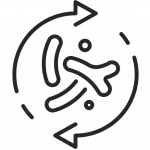Goodnight travel insomnia!
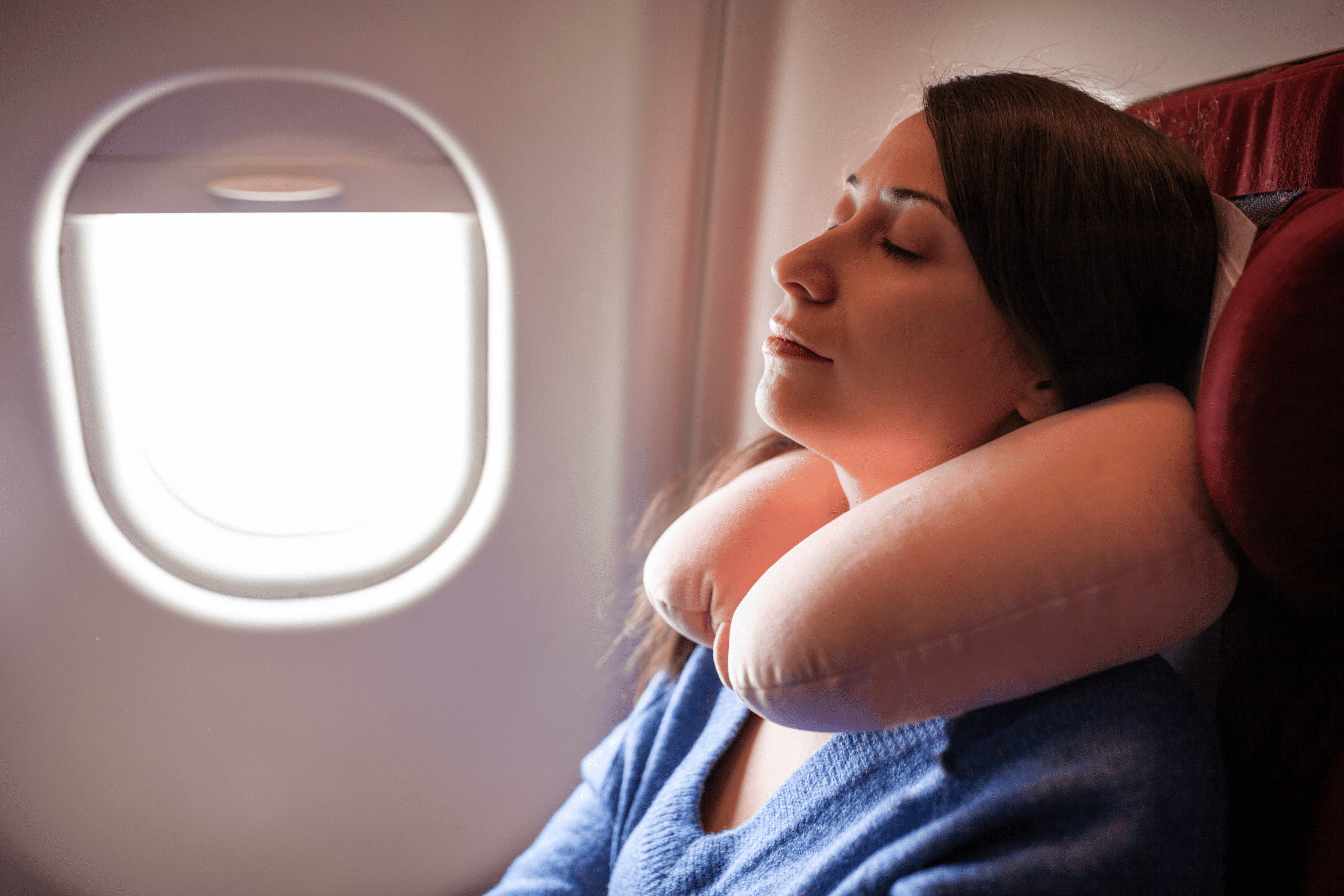
Goodnight travel insomnia! Often, a night away from home and the lack of a “favorite” bed, no matter how comfortable the hotel or living room mattress, can disturb sleep and spoil the hoped-for rest, adventure and visit. But don’t give up hope – there are many proven and effective tips and tricks that will help you fight against travel insomnia!
The first night effect
Imagine going on your dream vacation – it includes snorkeling with sea turtles, dancing the night away at a local pub and hiking in the mountains. All flights are on time and you get to the hotel without any problems. But there is one hidden threat that can still ruin all your plans – the so-called travel insomnia.
A bad night with restless sleep, frequent waking up and staring at the numbers on the clock on your smartphone, trying unsuccessfully to coax yourself to sleep or agonizingly waiting for morning. The first night is especially difficult – that’s why scientists have even introduced the concept of the “first night effect”. It can become one of the biggest threats to a perfect vacation, business trip or visiting close people.
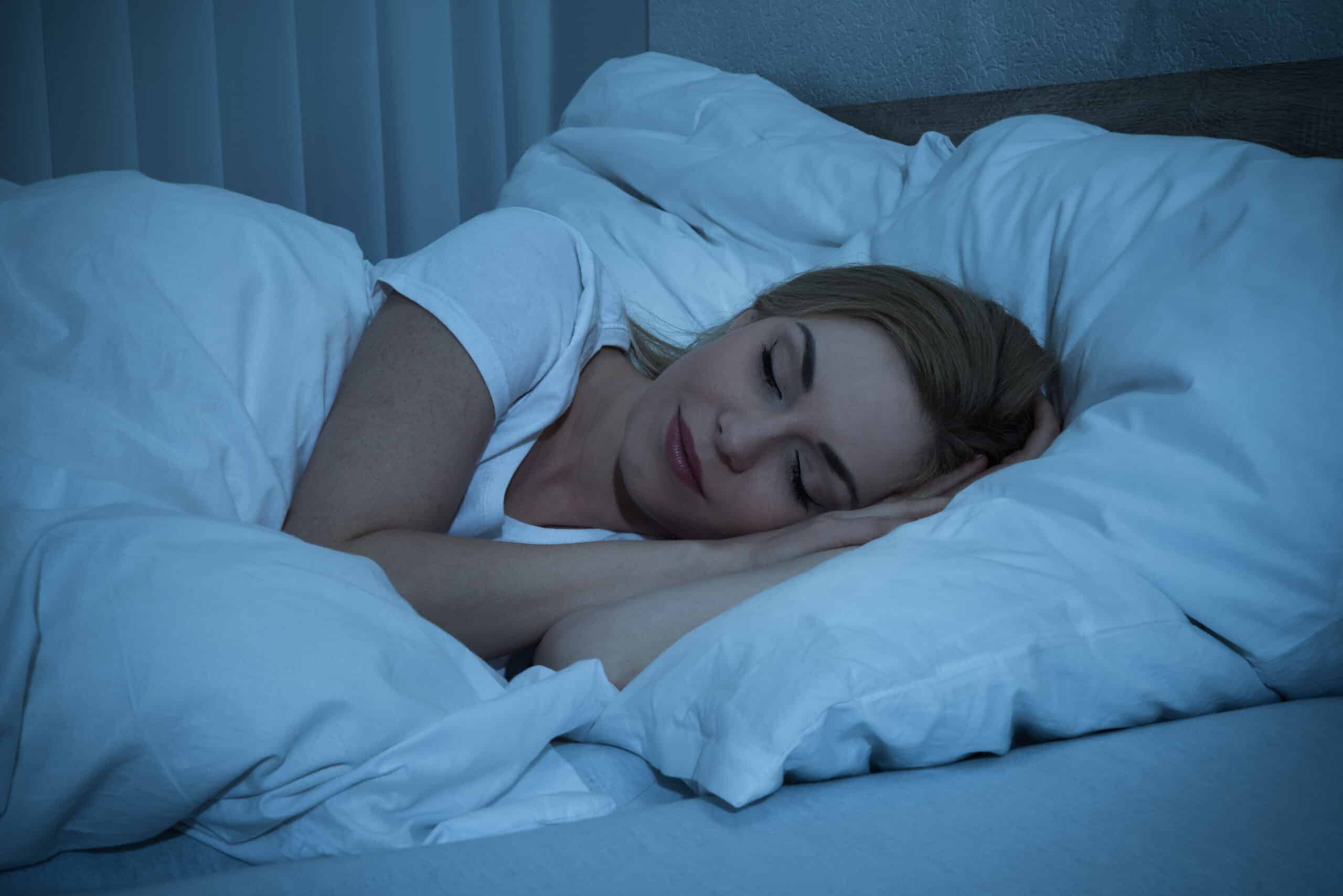
What causes travel insomnia?
Even experienced traveler’s often face this temporary sleep problem .
in a new bedroom despite your best efforts to reach the realm of dreams, or in scientific terms, reach the coveted rapid eye movement (REM) sleep phase. However, disruptions to sleep patterns, environment and even physiology can lead to a terrible night, especially the first time you sleep in a new place as your body and brain adjust to new ‘settings’.
There are many factors that can affect sleep disturbances in a new place – here are some of the most important!
The brain’s natural instinct
The instinct to protect oneself from harm that may arise in a new environment is one of the main reasons for the first night’s difficulty falling asleep in a new place. It has been found that on the first night of most travelers, half of the brain does not “sleep” – one hemisphere of the brain remains alert to process and respond to sounds of danger or threat. In unfamiliar situations, our brain refuses to shut down completely, as it would in the safety of our own homes, because the subconscious is not completely at ease in a new environment. This effect usually diminishes the longer a person stays in the new place, and already on the second night, anxious awakenings can occur twice as often as on the first night.
Comfort and fit
Problems sleeping in a new room can also be a matter of comfort and fit, or lack thereof. Changing sleep schedules, lighting, sounds and noises, temperature and sleep accessories can all cause sleep disturbances. It was discovered that the pillow is especially important! The head should be in the same position as when sleeping at home. It is not for nothing that many people take their own pillow with them when they travel, especially if they have problems with sleep apnea and loud snoring – a new pillow shape can cause problems for normal breathing.
The more similar the conditions of the new room will be to the bedroom at home, the higher the expectations for better quality sleep. Whether the culprit is a pillow that’s too low, a hot room, or a draft from the air conditioning unit, the key is to even out your breathing. When we don’t get enough oxygen, the brain tells us to wake up.
* Flight delay
Nothing can disrupt your sleep schedule like getting on a plane and flying to a foreign land – even if it’s just for fun. Jet lag – for which linguists have not yet found the most suitable term in Latvian – manifests itself as extreme fatigue, disrupted circadian rhythm and other physical effects that a person feels after a long flight across more than two time zones. After a flight, you may experience headaches and insomnia, you may want to stay awake longer than usual, or your eyes may droop at seemingly unusual hours of the day.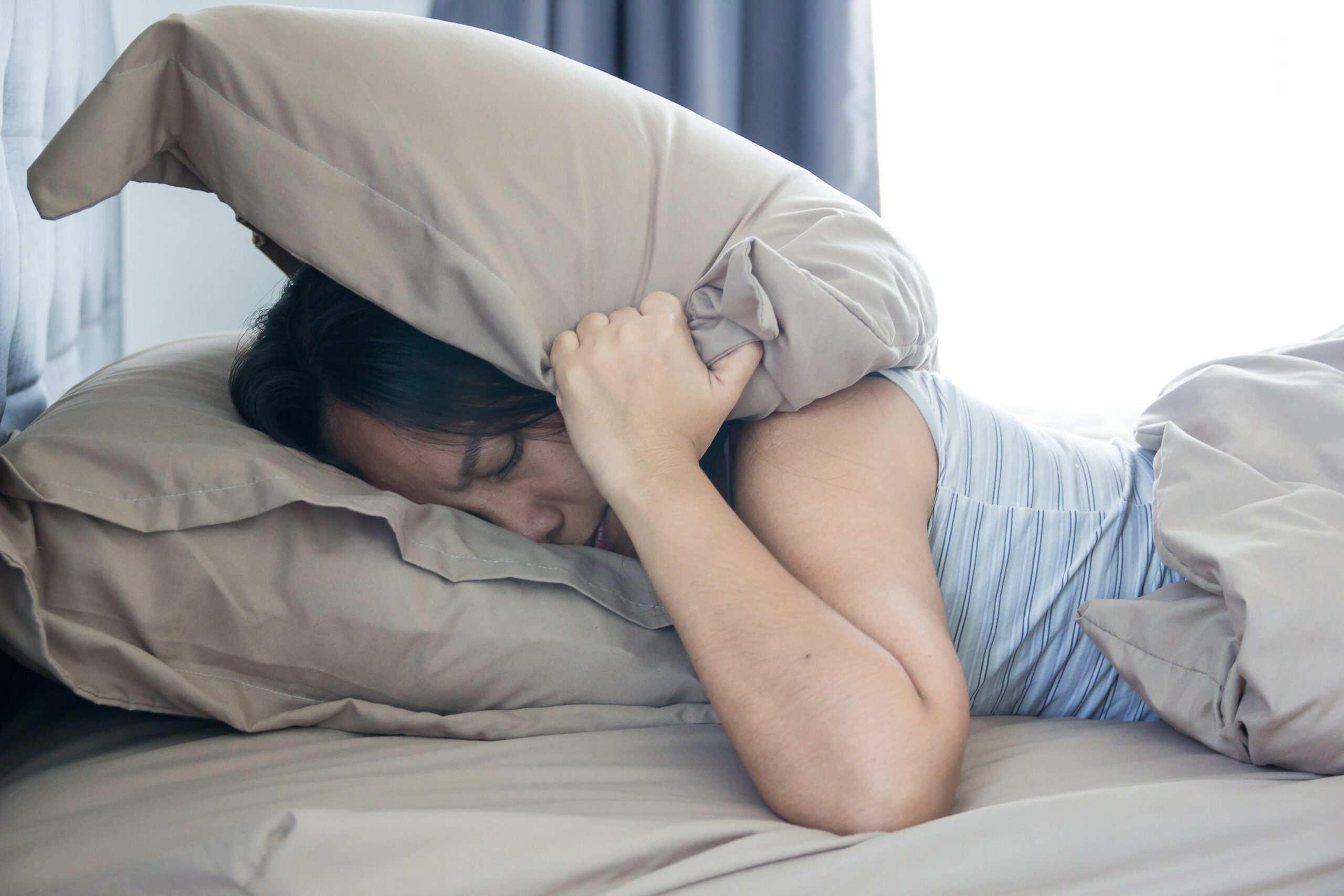
6 TIPS FOR A GOOD SLEEP WHEN TRAVELING
It is difficult to sleep in a foreign place as well as in the comfortable and familiar surroundings of your own home. That’s why sleep experts have found several tricks that allow us to trick our brains and bodies into adapting to a new environment as quickly as possible.
1. Sleep strategically
Three days before your planned trip, start moving your bedtime an hour earlier (or later) than usual. Add another hour on the second evening and a third hour on the third day. Each time zone takes about a day for the body to adjust, so planning ahead can help ease this transition.
2. Fit into the local flow
After landing in a foreign country, try to adapt to the local schedule. If you land in the middle of the day, you should stay awake too; if you arrive at night – do your best to stay awake on the plane and sleep at your destination.
3. Observe the two-day rule
If you plan to stay somewhere for no more than two days, try to maintain your usual routine. While your body adjusts, it will be time to go home.
4. Let there be light!
The goal is to recalibrate the clock to be closer to bedtime at your destination. If traveling west, which is less disruptive, try to get light exposure in the early evening, such as eating outdoors or going for a walk, to shift your circadian rhythm a little later. When traveling east, bring sunglasses to reduce light exposure – preferably in the late morning and early afternoon to get maximum light exposure, which will shift your rhythm closer to your destination’s time zone.
5. Move your body
When you’re ready to start your day, it’s a good idea to take a warm shower and go outside to exercise to signal your body that it’s time to go. The increase in body temperature initiates our circadian rhythm.
6. Use melatonin
Natural levels of melatonin, known as the sleep hormone, usually rise about two hours before bedtime, preparing the body for rest. If you’re traveling, your body may need a little ‘nudge’. Melatonin is available as an over-the-counter sleep aid in doses up to 10 milligrams. It helps your body produce natural melatonin at the appropriate times when your schedule is inconsistent.
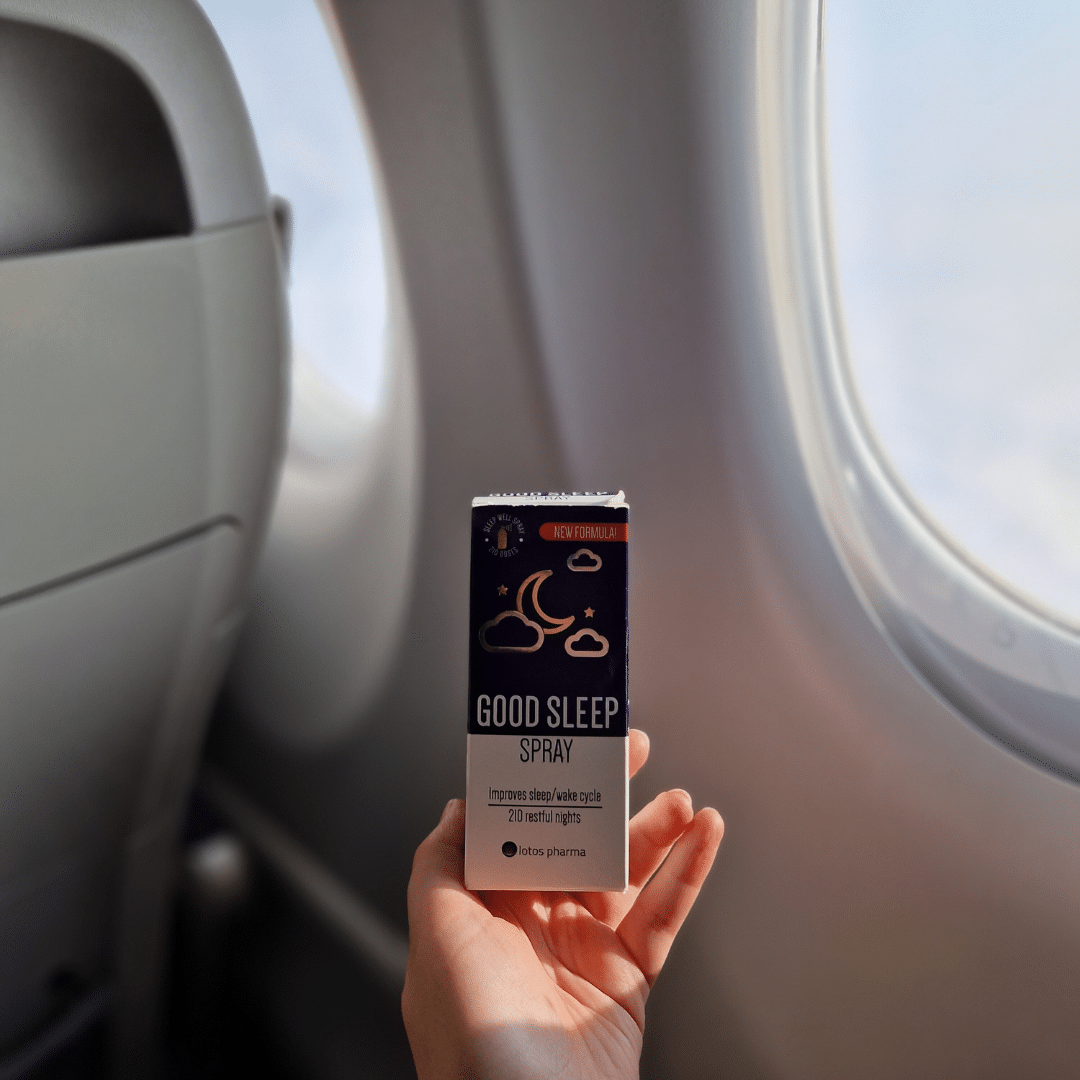
Herbal remedies are safer, such as Good Sleep Spray and Good Sleep Caps – a product for good sleep produced in Latvia, developed by Lotos Pharma in cooperation with specialists.
Good Sleep Spray is the first sublingual sleeping aid whose melatonin content helps to reduce the time required to fall asleep¹ and ease the feelings associated with disruption of the circadian rhythm², while the passionflower plant has a sedative effect and helps maintain mental relaxation and healthy sleep.
Good Sleep Caps capsules for sleep also contain melatonin¹, passion flower and other plant extracts. Valerian promotes mental health. Hops have a calming effect.
2The beneficial effect is achieved when taking at least 0.5 mg of melatonin on the first day of travel immediately before bedtime and on the first few days after arriving at the destination.





